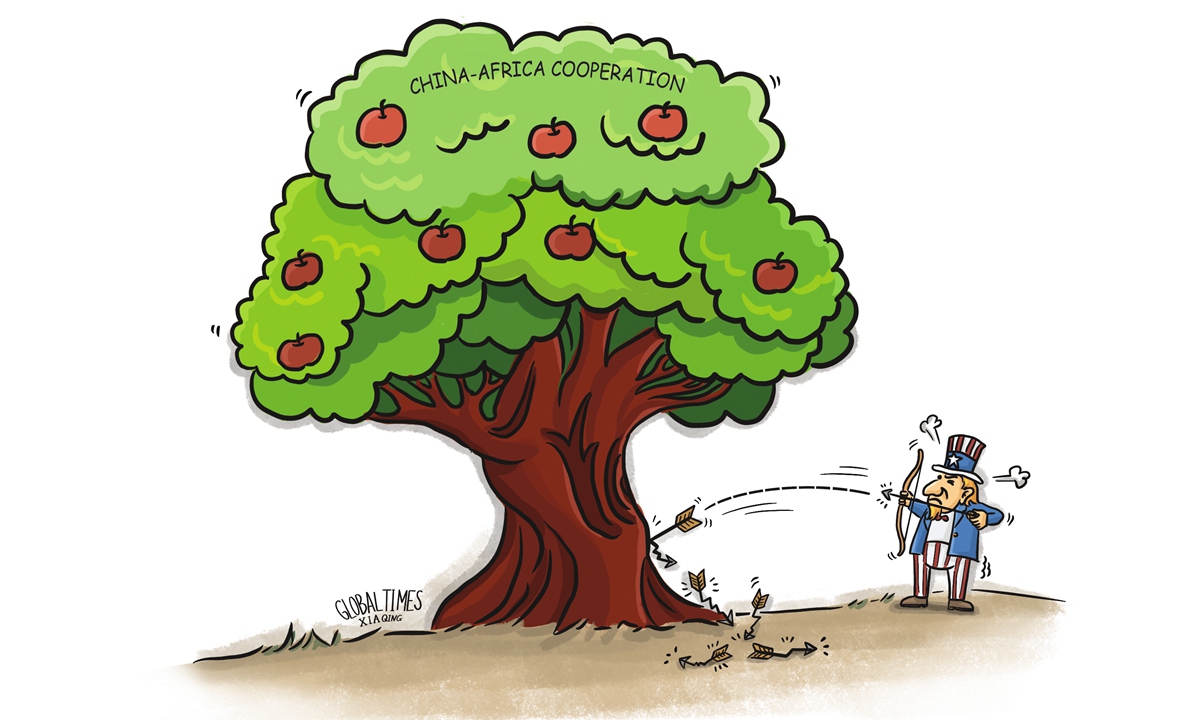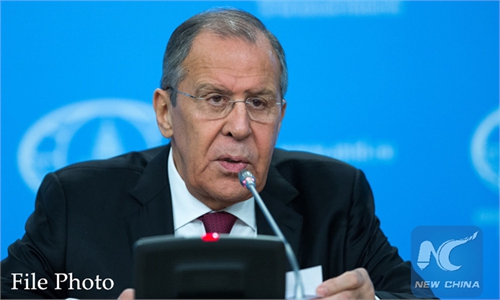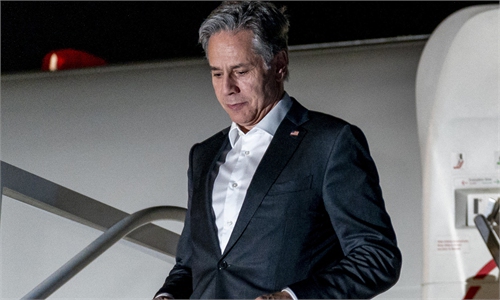
Illustration: Xia Qing/Global Times
As the Biden Administration is about to unveil a new Africa strategy, senior US diplomats are paying visits to Africa. Following US Representative to the United Nations (UN) Linda Thomas-Greenfield's visit to the continent, US Secretary of State Antony Blinken arrived in South Africa on Sunday to kick off a three-country tour.Since the end of World War II, the US has placed Africa as at the bottom of its global strategy. Although the US diplomatic emphasis on Africa has grown now, it only attempts to bring the Cold War to Africa once again, ruining Africa's development prospects.
In the political realm, some African countries are forced by Washington to take sides. During her visit to Africa, Thomas-Greenfield criticised that the Russia-Ukraine conflict has added to the food crisis in the continent, "especially since some countries in Africa once got up to 75 percent of their wheat from Russia and Ukraine."
Asked by African reporters whether the US will sanction African countries that have economic relations with Russia,Thomas-Greenfield warned African "countries should not engage with countries that have been sanctioned by the US," laying bare the US government's coercion and hegemony.
In the economic field, the US is fanning all-round competition with China. After the end of the Cold War, the US decided to withdraw from the African market, believing that the return on investment was too low to attract American companies.
In the past two decades, with the active promotion of the "Forum on China-Africa Cooperation" and the "Belt and Road Initiative," Chinese enterprises have become an important force in promoting industrialization and modernization in Africa. This has led the US to re-examine the African market from a "competitive" perspective. Blinken is reportedly to mobilize American private companies and American banks to jointly invest in Africa, accelerating competition with China in the continent.
In the field of ideology, the US has vigorously promoted American values. The visit of the two leading US diplomats this time demonstrates the strategic intention of the US to promote American values in Africa. For instance, Blinken reportedly will meet with senior government officials and representatives of civil organizations during his visit to the Democratic Republic of the Congo to discuss how to ensure "free, fair and inclusive elections in 2023."
The new version of the US' Africa strategy is about to be announced. Although it reflects a shift of the US' diplomatic efforts to Africa to a certain extent, it is by no means a blessing for Africa and the continent's future development.
As predicted by some Western think tanks, many African countries have put a question mark on the motives of the US government to engage with Africa again. Bringing Africa to the path of confrontation or a new Cold War will undoubtedly lead to a disaster in the continent. Only through returning to multilateralism and win-win cooperation can Africa achieve the goals set in the 2030 Agenda for Sustainable Development.
The author is professor with School of International Relations and Diplomacy, Beijing Foreign Studies University. bizopinion@globaltimes.com.cn



